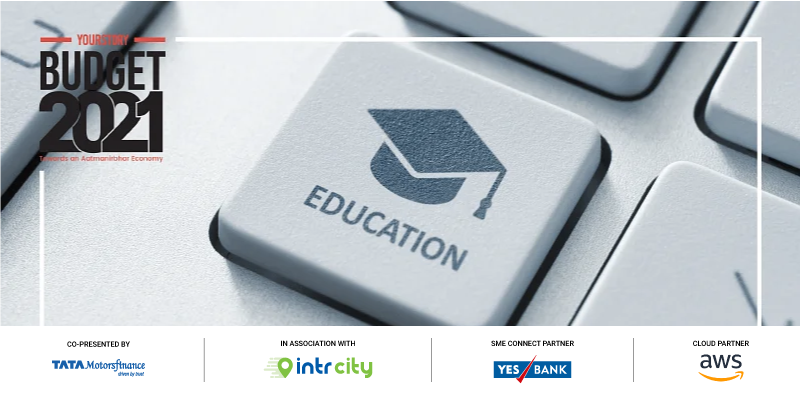Starting up is more than complex tech. Here is some advice for the budding entrepreneur raring to go
Do you have stars in your eyes and technology on your mind? Are you waiting to create the next big disruption in the startup world? Get your first days, decisions right and you will taste success sooner than you think.

In the last couple of years, I have interacted with several budding entrepreneurs working on technology-based startup ideas. Most are rightly engrossed in the technology behind the solutions they intend to bring out, but very few are able to orient their technical minds to develop solutions from the vantage point of a user. While some get it right without committing follies, several get caught up in the myriads of common mistakes and end up with whirlwind stories of brief entrepreneurial stints, making for discussions over steaming cups of coffee paired with nostalgia. If you are starting up now, here are some thoughts that can help.
Don’t get consumed by complex technology- Keep it simple
A techie’s eyes are lit up at the idea of sophisticated technology, which in most cases tends to overshadow the importance that needs to be placed on user experience. What budding entrepreneurs miss is the fact that a user wants ease-of-use and a great experience, and may not necessarily be concerned with the complexities of the technology.
Focus on the needs of the user, and not on what you can offer
It is also important to realise that users have diverse tastes, preferences, use cases, and prior experiences that shape their needs and expectations from a product. Prof. Theodore Levitt of Harvard Business School had rightly said, "People don't want to buy a quarter-inch drill. They want a quarter-inch hole!” Entrepreneurs need to focus not on what they can offer, but on what the end user is interested in, and its use case. Entrepreneurs at times tend to discount the importance of empathising with the end user before designing the product – a critical mistake that must be avoided.
If you try to build everything for everyone, you end up building nothing for no one
Another common mistake budding entrepreneurs often make is that they try to build their product for everyone. They tend to load up their product with too many features and seek to cater to too many use cases. It is important to start small with baby steps: design, refine, test, and iterate, with respect to one use case. Budding entrepreneurs need to know that focused effort is important in view of their limited resources. They need to pick a segment and go after it, rather than being on a wild goose chase. If the answer to the question ‘Who is your target customer?’ is as generic as ‘anyone’ or ‘a lot of people’, you have got it wrong! More often than not, you have to sketch a single customer and lay out a single problem that he faces and make a single solution for it. Then you say how many people of a similar description exist, where they are, how you will contact them. And there! You got your target segment.
Understand your target audience, begin with market research
Making assumptions based on a narrow worldview and a limited understanding of the target segment is another issue with budding entrepreneurs. Not realizing the importance of market research and customer validation is a big mistake. Make sure you avoid beginning to shape your product for a buyer existing only in your mind.
Pen down your plan, with clearly defined goals
An indispensable component of building businesses is formidable and detailed planning. Young entrepreneurs tend to plan in their minds without putting pen to paper or fingertips to keyboard. The problem with a plan in the mind is that one may not be able to handle the multidimensionality of the plan and tend to keep redefining and/or pivoting. Further, a plan must have specific, quantifiable and output-oriented goals. Input-oriented goals like, ‘I will reach out to 100 potential customers in the next one month’ are ineffective. The problem with this goal statement is that rather than defining results, it defines the effort. On the other hand, see the following goal statement: ‘I will have 10 paying customers in the next one month’. Now, you may reach out to 50 potential customers and get 10 paying customers or you may have to reach out to 500 potential customers to get 10 paying customers. You do whatever it takes, but you will have 10 paying customers.
Setting out on an entrepreneurial journey is no mean feat, the success of which is often measured by the risks and failures that are overcome in the process. Ignoring these fundamental points can land you with an amazing product that very few people want to buy. Most entrepreneurs are driven by passion and many times the zeal blocks their ability to play devil’s advocate and question their own assumptions about the product. It is not every day that brilliant ideas are born and solutions to everyday problems envisioned. Circumventing some common mistakes can be instrumental in increasing the likelihood of the entrepreneurial venture turning into a success!
(Disclaimer: The views and opinions expressed in this article are those of the author and do not necessarily reflect the views of YourStory.)











![[Funding alert] Locus raises $50M Series C funding led by GIC](https://images.yourstory.com/cs/2/b094ec506da611eab285b7ee8106293d/nishith-1614753097789.jpg)